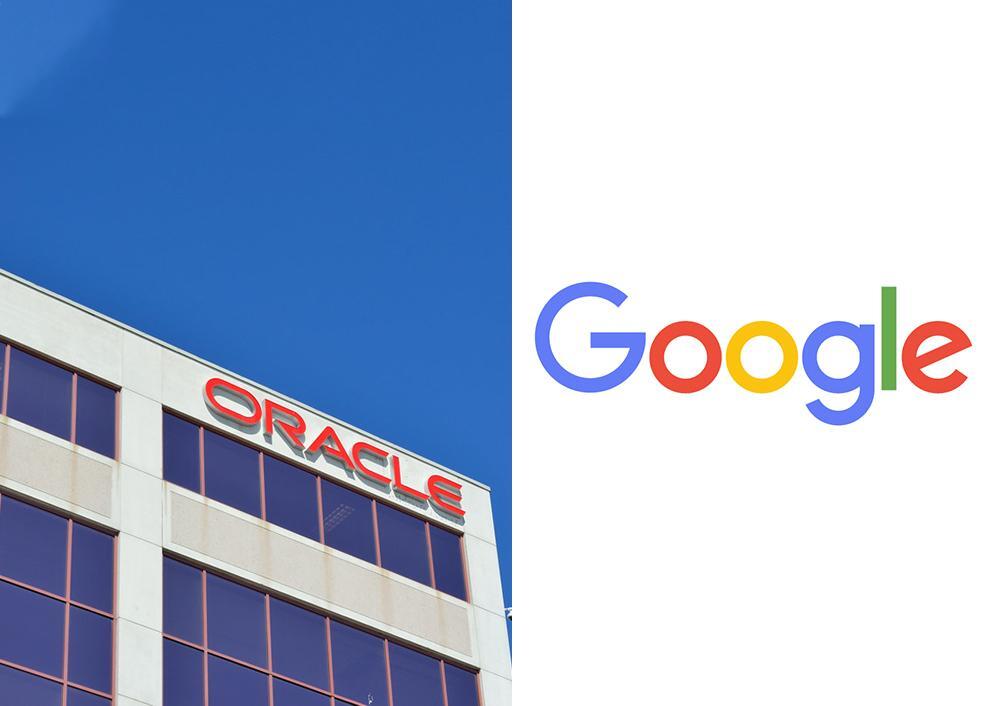Google, Oracle financed many supporters in Supreme Court faceoff

October 6: Alphabet Inc.’s Google and Oracle Corp. will face off in the U.S. Supreme Court on Wednesday in a multibillion-dollar copyright dispute with sweeping implications for technology and media companies worldwide.
But the finale of the high-stakes litigation, which has been grinding through the federal courts for a decade, may be remembered for another reason: as a case study in the subtle art of influencing Supreme Court justices, BloombergQuint reported.
The bare-knuckle Google v. Oracle brawl features dozens of outside groups that have written, signed or recruited others to join friend-of-the-court, or amicus curiae, briefs. Many have received funding from one of the companies for reasons unrelated to the case but didn’t disclose it.
Amicus briefs are “the primary way that groups lobby judges in America and justices on the Supreme Court in particular,” said Paul Collins, who studies such briefs as a political science professor at the University of Massachusetts Amherst. “There is a tacit quid pro quo with the idea being that these groups” are expected to support their funders’ positions.
It’s unheard of for a company to outright lobby the Supreme Court, yet legal experts say amicus briefs, which are supposed to provide independent perspectives from third parties, can influence the outcome.
There’s no evidence that anyone broke the Supreme Court’s rule requiring “amici” — which means “friends” in Latin — to declare whether a litigant contributed money intended to fund the preparation of the brief.
But the rule has a loophole: It doesn’t require brief writers or signatories to disclose general funding unconnected to the specific court case. “It’s a significant loophole,” said Collins. Democratic senators on the Judiciary Committee last year proposed a measure requiring amici to disclose funding sources.
The 60 friend-of-the-court briefs in Google v. Oracle is four times the number filed in the average high court case. Among the combatants are a Hollywood lobby shop, a dark-money group with an anti-big-tech agenda and an advocacy organization for blind people.
The case pits tech companies that want freer use of programming languages against entertainment and media businesses that favor stronger copyright protections.
Google is challenging an appeals court ruling that it violated Oracle’s copyright when it included some Oracle-owned Java programming code in the Android phone. Sun Microsystems developed the Java language before Oracle bought the company in 2010.
On at least 14 briefs on behalf of Google, some of the authors or their employers received money from the search giant, while the writers of seven briefs supporting Oracle received funds from the software firm, according to a Bloomberg analysis. Many omitted disclosing that they’d received donations, grants, membership dues or other compensation from one of the companies.
Some of these same groups also sought to shape public perception of the case with op-eds, blog posts and media interviews.
At stake in the case are pre-written directions known as application programming interfaces, or APIs, which allow different software programs to communicate with each other, a function commonly known as interoperability. By using those shortcuts, programmers don’t have to write code from scratch for every function in their software, or change it for every type of device.
Oracle says the Java APIs are available to those who want to build applications that run on computers and mobile devices. But because the Java APIs are copyrighted, Oracle claims, a license is required to use the shortcuts for a competing platform or to embed them in an electronic device.
Google argues that the software interfaces weren’t eligible for copyright protection. The company also says that, even if the APIs are copyrightable, then Google’s use of them would qualify as a “fair use” exception.
In 2018, the U.S. Court of Appeals for the Federal Circuit sided with Oracle, reversing earlier court rulings. In two separate rulings, the court said APIs are copyrightable and that Google’s use of them failed the fair use defense. Oracle has said it’s entitled to at least $8.8 billion in damages.
Almost 250 engineers, scientists, developers, companies and nonprofits “came together to support our position,” said Jose Castaneda, a Google spokesperson. “They are often on different sides of various issues, but they joined together to argue for software interoperability, which has allowed American innovation to flourish.”
Tom Goldstein, Google’s outside counsel, said in a statement that the company’s unrelated donations to amici were “never a factor in our talking with them about their position on these issues.” Oracle didn’t respond to a request for comment.
https://www.bloombergquint.com/onweb/google-oracle-financed-many-supporters-in-supreme-court-faceoff
Sign up for our weekly newsletter to stay up to date on our product, events featured blog, special offer and all of the exciting things that take place here at Legitquest.




Add a Comment